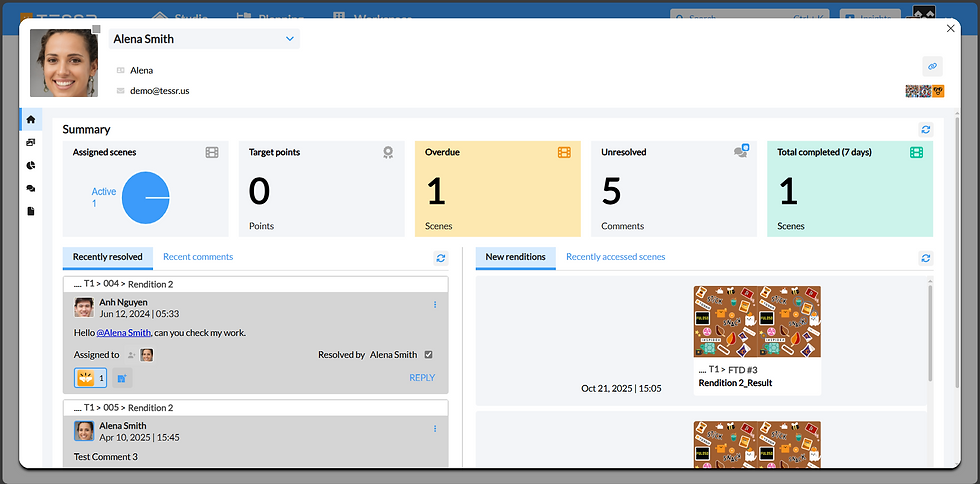The Domino Effect of Poor Time Management in Creative Projects
- Adilla

- Oct 24, 2025
- 4 min read
Updated: 7 days ago

When tasks are pushed back or are taking longer than they should, is the task difficult, or is there an underlying issue with missed deadlines and task management? Do you struggle to stay within the allocated time of your work?
Especially in the creative industry, predicting the time needed to work on your projects can be, well, unpredictable. There is no one reason why time management is difficult; it can be both external factors and internal factors, like time blindness, if you struggle to perceive time.
Table of Contents
The Impacts of Missed Deadlines
Negative Strains on Mental Health
When deadlines are not met, it causes a chain reaction. It not only affects the stacks of tasks you would have completed, but it also puts an extra mental load on you. Additionally, it harms your creative mental health in the process, which in turn affects the quality of your work.
Lowered Productivity and Efficiency
With a missed deadline, all other tasks are pushed back. Thus, it affects the overall workflow, resulting in poor productivity and reduced work efficiency.
Delayed Work Leading to Financial Consequences
While there’s nothing wrong with missing deadlines or delaying your work, there are, unfortunately, financial consequences to delayed work. It might not be obvious at first, but if it happens frequently, it could affect business opportunities or cause you to lose your clients.
What Causes Poor Time Management

Understanding the root cause of your time management issues is the first step in addressing them.
Unexpected Scope Creep
Scope creep is an expansion of a project’s initial scope after the start date of the project. It can be a new add-on of requirements or tasks, or a change of schedule. These changes would affect the overall work progress.
Overcommitting
Accepting opportunities every chance you get is good, but it shouldn’t be at your expense. Putting too much on your plate will make it hard for you to find which tasks to prioritise, especially when everything looks important, leading to missed deadlines.
No Breaks and Multitasking
Speeding through the day sounds like a great idea to finish your work faster and even slotting different work in between waiting for approvals and feedback. However, in the long run, this will cause you to burn out faster and slow down your work progress.
Thus, it affects your time management in the future, where you can no longer take the same load as you would have initially.
Distractions
Are you the type to keep your notifications on and check your phone every few minutes? This would disrupt the time you allocate for your work.
Effective Strategies to Manage Time Disruptors
Firm With Your Project Scopes and Goals
When outlining your project scopes and goals, be transparent about what changes are allowed and the process that needs to be gone through when changes do happen.
With a firm document, you can prevent scope creep that could potentially disrupt the schedule and cause deadline stress.
Close Apps and Clear Out Notifications Before Starting Work
Switching off display or sound notifications (or both) before turning your attention to your tasks. By doing this, it will stop you from checking your phone or opening any notifications that can come to your screen anytime.
Work Boundaries and Knowing When to Say No
Establish a healthy boundary between your work time and personal time. As creatives, this clear distinction will prevent work stuff from slipping into your personal life, saving your mental health from any extra burden.
When accepting new tasks and opportunities, assess your workload and limitations. It can be a struggle to reject these tasks if you don’t have capacity, so learning how to say no to extra work can prevent future time management issues.
Schedule Your Working Time
Blocking your work time that works for you, rather than following the traditional 9-to-5, especially for remote creatives. With a clear working schedule, you are less likely to entertain any distractions that come during your time block.
How to Use TESSR to Prevent Missed Deadlines

TESSR prioritises ensuring creatives focus on what they are passionate about. Their creativity and productivity are at the forefront of our project management software, so it has features to prevent missed deadlines.
For Leaders
Modules like Insights give you an overview of everyone’s workload and progress visibility, so you can make sound decisions when delegating tasks. Poor workload distribution will not only cause poor time management but also burn out your team as well.
For Creatives
Insights function differently for creatives, as they provide an overview of your work performance and the tasks assigned to you. When you plan your tasks for the week, you won’t need to contact your leaders to clarify what you should be doing.
This approach reduces the potential for time wasted on discussions about your work.
Key Takeaways
Poor time management causes a chain reaction that leads to missed deadlines.
By managing time better, it doesn’t just prevent delayed tasks, especially for creatives; it positively impacts productivity and creativity.
Project management (PM) software helps in ways beyond just managing projects; it helps the teams, too.
If you want to learn more ways to utilise PM tools better, let's join our support group here on Facebook.
Author Bio
With a background in Arts English, Adilla has been a casual writer for various hobbies, like parodies of animated shows and plots for board games. She loves to read anything and everything, from fantasy stories to articles on tips and tricks. Now an advocate for mental health and effective project management for the creative industry. Currently, Adilla resides in Malaysia and is a creative writer at TESSR. To know more about her, check out her LinkedIn.

Comments